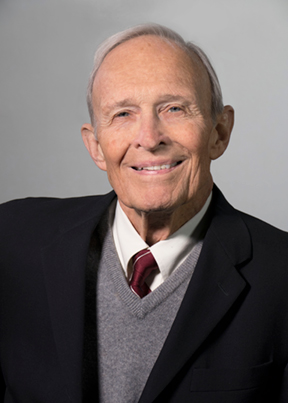Retired Partner, Urology of Virginia
 For 46 years, Dr. Paul Schellhammer has helped turn Urology of Virginia into a major research hub for urologic oncology. His particular expertise in prostate cancer has fueled clinical trials that have led to an explosion of effective therapies, many of which he also has used to successfully manage his own prostate cancer for 20 years.
For 46 years, Dr. Paul Schellhammer has helped turn Urology of Virginia into a major research hub for urologic oncology. His particular expertise in prostate cancer has fueled clinical trials that have led to an explosion of effective therapies, many of which he also has used to successfully manage his own prostate cancer for 20 years.
Widely published and internationally recognized in his specialty, Dr. Schellhammer has held numerous national leadership positions and been a steadfast presence at Urology of Virginia, a practice soon to celebrate 100 years of service in Hampton Roads. In 2012, the practice dedicated its comprehensive oncology treatment and research center to him.
At Eastern Virginia Medical School, Dr. Schellhammer has guided four decades of students and founded the school’s Virginia Prostate Center, an innovative translational research program. The Center, with patients from Urology of Virginia, provided data to the FDA for approval of the first immunotherapy for advanced prostate cancer, Provenge, in 2010.
“The field really exploded after that,” Dr. Schellhammer says. “I could name five or six therapeutic interventions in which Urology of Virginia has since participated, each extending life six to 24 months – buying time until the next new treatment. Advances happen virtually every month.”
Now 80, Dr. Schellhammer still went to his office once a week before the coronavirus pandemic, handling prostate cancer cases and teaching EVMS residents. He has openly shared his own experiences with the disease – diagnosed during a routine physical at age 60 – to empathize with and inspire his patients.
“One can live a very full, productive and lengthy life, even if ‘beating’ or ‘curing’ this cancer isn’t always possible,” he notes. “You just have to be careful, keep it under control, keep chugging away, and have faith that small steps will add up to great gain.”
Dr. Schellhammer has served as president of such prestigious health organizations as the American Urologic Association, Society of Urologic Oncology, and American Board of Urology. His work has included brainstorming new clinical trials across the country and world.
A New York City native, Dr. Schellhammer was the son of schoolteachers and considered a career as a Catholic priest before turning to medicine, another way of helping people. He graduated from Weill Cornell Medical College and completed a general surgery residency at University Hospitals Cleveland.
Planning to specialize in orthopaedics, Dr. Schellhammer reconsidered during a yearlong deployment with the Air Force in the Vietnam War. Urology’s mix of medical and surgical cases, he realized, might appeal to him more.
Somehow stumbling across an issue of the New England Journal of Medicine while in Vietnam, he responded to an ad about a urology residency at what was then Medical College of Virginia in Richmond – despite having never traveled south of Washington, D.C. He went on to a fellowship in urological oncology at Memorial Sloan Kettering Cancer Center.
“I have told my residents, ‘Keep your mind open to possibilities that aren’t in your original game plan,’” he relates. “Serendipity and spontaneity can bring forth amazing possibilities.”
Dr. Schellhammer joined Urology of Virginia in 1974 and the EVMS faculty in 1978; he chaired the school’s Department of Urology from 1989 to 2000. He has watched care for prostate cancer evolve from debilitating surgeries to targeted therapies and robotic operations with far fewer side effects and much faster recoveries.
Through it all, Dr. Schellhammer has stressed collaboration and teamwork with his partners at Urology of Virginia, who represent multiple subspecialties, and EVMS physicians and researchers.
“I’ve always been blessed with excellent associates,” he says. “That includes my patients: I call them ‘participants’ – not ‘survivors’ – because we go through diagnosis, therapy, and follow-up together. I am constantly motivated by their perseverance and heroism.”

